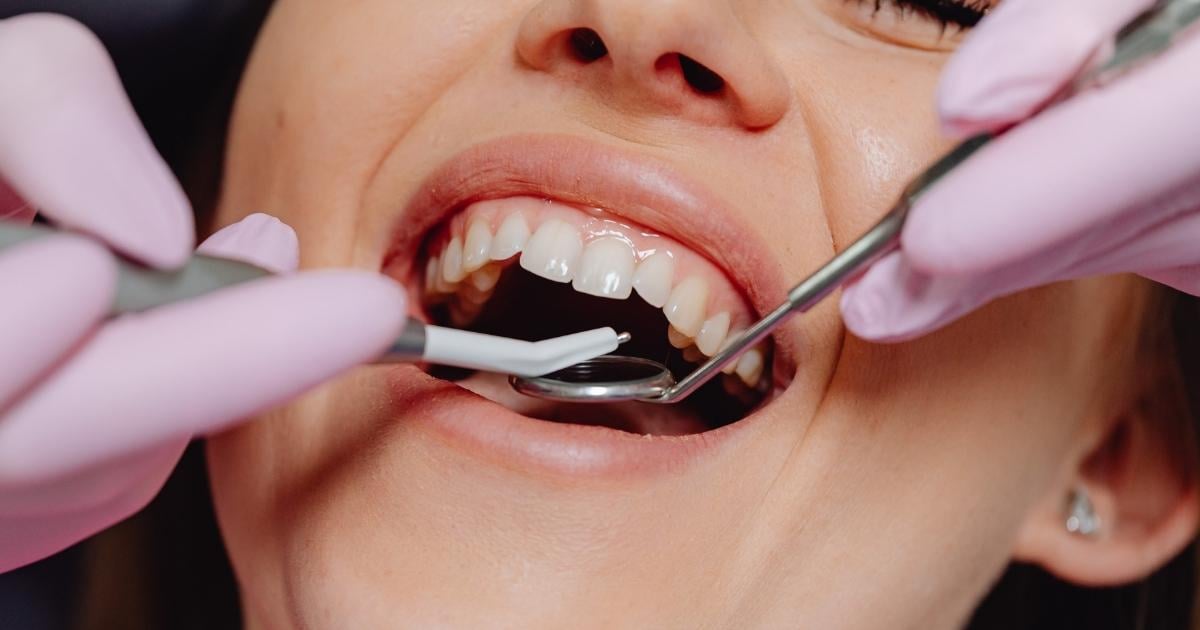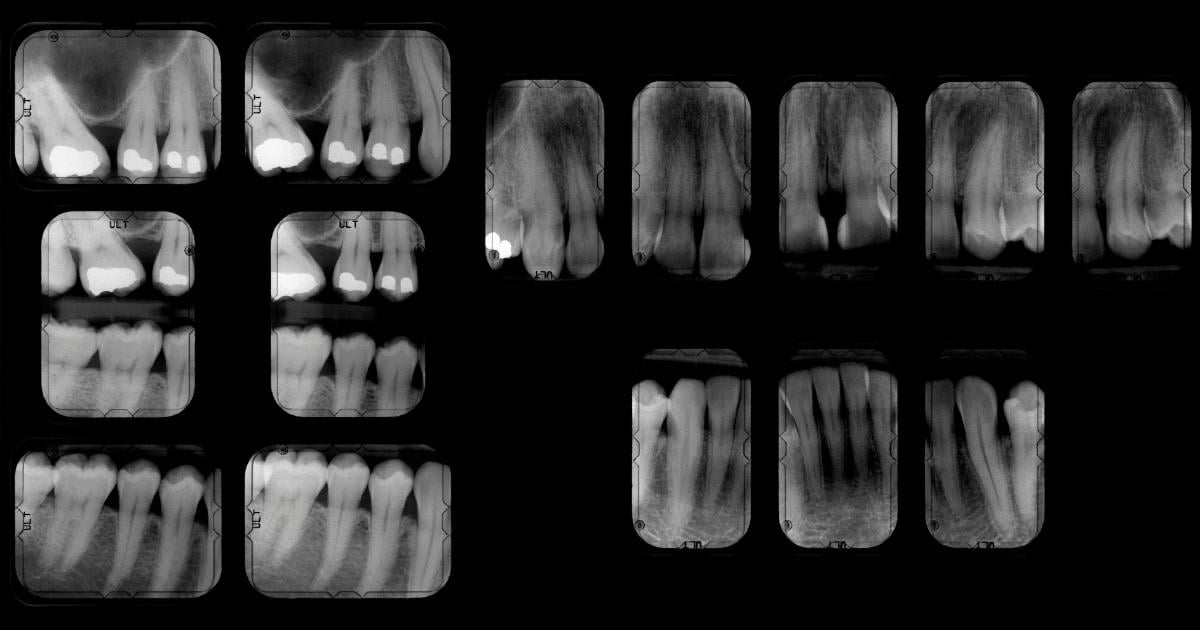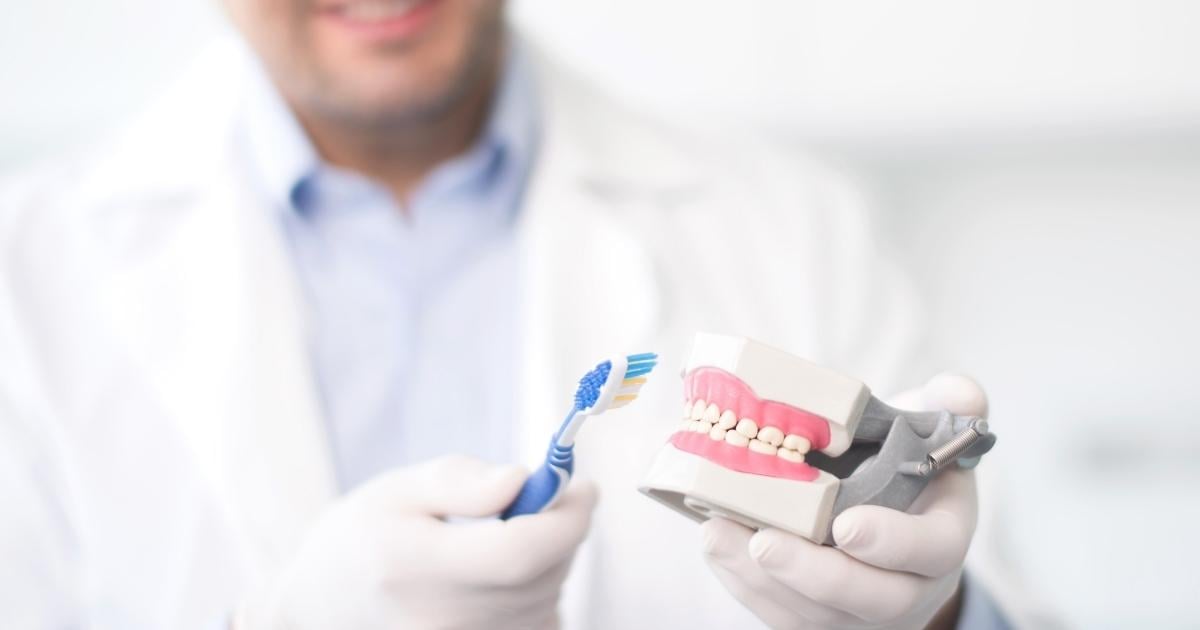Seeing your dentist goes far beyond just getting cleaning and checking for cavities. Measurements are recorded to track the progress of periodontal health. Periodontal measurements are critical in monitoring the health of the gums and bone level over some time. Annual radiographs help to see if there is heavy buildup along with cavities. Sometimes dental buildup is only seen on radiographs because it is below the gum line. Radiographs also show the level of bone to track over time if any concerns arise.
Routine dental care for healthy people should be cleaned and examined every six months with a dentist at least once a year. Dental care for people with active periodontal disease or a history of periodontal disease should be seen every 90 days. Bacteria in people with periodontal disease become aggressive every 90 days and can further progress bone loss if they do not keep up with follow-up care.
Dental Care and Chronic Diseases
Infections of the mouth and oral tissues are also closely linked to diabetes, heart and lung diseases, stroke, and low birth weight or premature births. These are preventable conditions, but due to a lack of education and insurance, dental care is the last priority. Education about how the mouth affects a person's whole health is important because many people do not realize the mouth-to-body connection of health. Oral diseases affect around 3.5 billion people and is the most common non communicable disease worldwide. [1].
If a person is dealing with diabetes, their risk for periodontal disease is much higher. If their A1C blood sugar levels are not well controlled or above a 7, this prevents the body from being able to heal itself. The slow healing process affects gum tissue and bone, eventually leading to tooth loss. Cavities in children are the most common chronic disease. Cavities in children are more common than the rates of asthma and hay fever. [2]

Oral Cancer Awareness
Oral cancer has around 53,000 new cases yearly, roughly 3% of all cancers diagnosed annually in the United States. When visiting your dentist, your dental hygienist will conduct an oral cancer screening that feels around your head, face, jaw, and neck for any lumps and bumps that should not be there. Concerns about oral cancer should be brought up promptly with your dentist, as oral cancer can be very aggressive.
Conducting a brief oral cancer screening at home would include looking at your tongue, the back of your throat, lips, cheeks, and under the tongue. The most common areas for seeing changes are on the sides of the tongue and the floor of the mouth.
People who use chewing tobacco causes the cells to mutate and increase cancer risk. If you are unable to quit, moving the location of where you put your chewing tobacco every couple of weeks will allow for the tissues to heal. If the areas still show signs of mutation after two weeks, follow up with your general dentist, who will refer you to a dental surgeon to biopsy the site and test for cancer. [3]

Causes and Symptoms
Men are twice as likely than women to be affected by oral cancers, and it is usually seen around men over 40. The use of tobacco products and heavy alcohol consumption put you at risk for oral cancer. If you consume alcohol and use tobacco products, your risk is even greater. HPV infection increases one's risk for oral cancer, especially HIV 16 type. Long-term exposure to the sun without protection can lead to lip(s) cancer.[3]
If there are any new lumps or sores you have not noticed before and last for over two weeks, schedule an appointment with your dentist as soon as possible for a 10-minute oral cancer screening. Things to look out for include;
- A sore, irritation, lump, or thick patch in your mouth, lip, or throat
- A white or red patch that was not there previously
- A chronic sore throat
- Difficulty moving your jaw or tongue
- Swelling of the jaw that causes dentures or partials to fit poorly or become uncomfortable to wear
- Numbness in your tongue or other areas of your mouth

Overall, good oral health habits include brushing your teeth twice a day for two minutes, flossing at least once a day, eliminating sugary foods and snacks that cause cavities, and maintaining visits with your caring dental hygienist and the dental team. Loss of teeth is not related to the aging process. Loss of teeth is directly related to poor oral health and untreated cavities, and periodontal disease. Remember to bring up concerns with your dental team before they become an emergency situation.
Choosing a healthy plant-based and vegan diet is most beneficial when it comes to:
-
Higher levels of energy;
-
Improved sleep;
-
Aids in energy and overall happiness;
-
Provides a sense of comfort and relief;
-
Could prevent major diseases such as obesity and diabetes;
-
Accomplish weight-loss and management; and
-
Improves mental and cognitive functioning.
There are really no excuses not to try healthier habits in your everyday life. If you are a man or woman looking for specific benefits of adopting healthier habits or just want to know about the general healing properties of herbs. Please remember to comment or post any health questions, or contact us directly!
Also feel free to share any of your favorite recipes to make and share it with the Assuaged community on our ➡️ Share A Recipe ⬅️ page!










/Be-Your-Highest-Delta-8-Psychoactive-Rest-Sleep-Spray-960x180.gif?width=960&height=180&name=Be-Your-Highest-Delta-8-Psychoactive-Rest-Sleep-Spray-960x180.gif)







